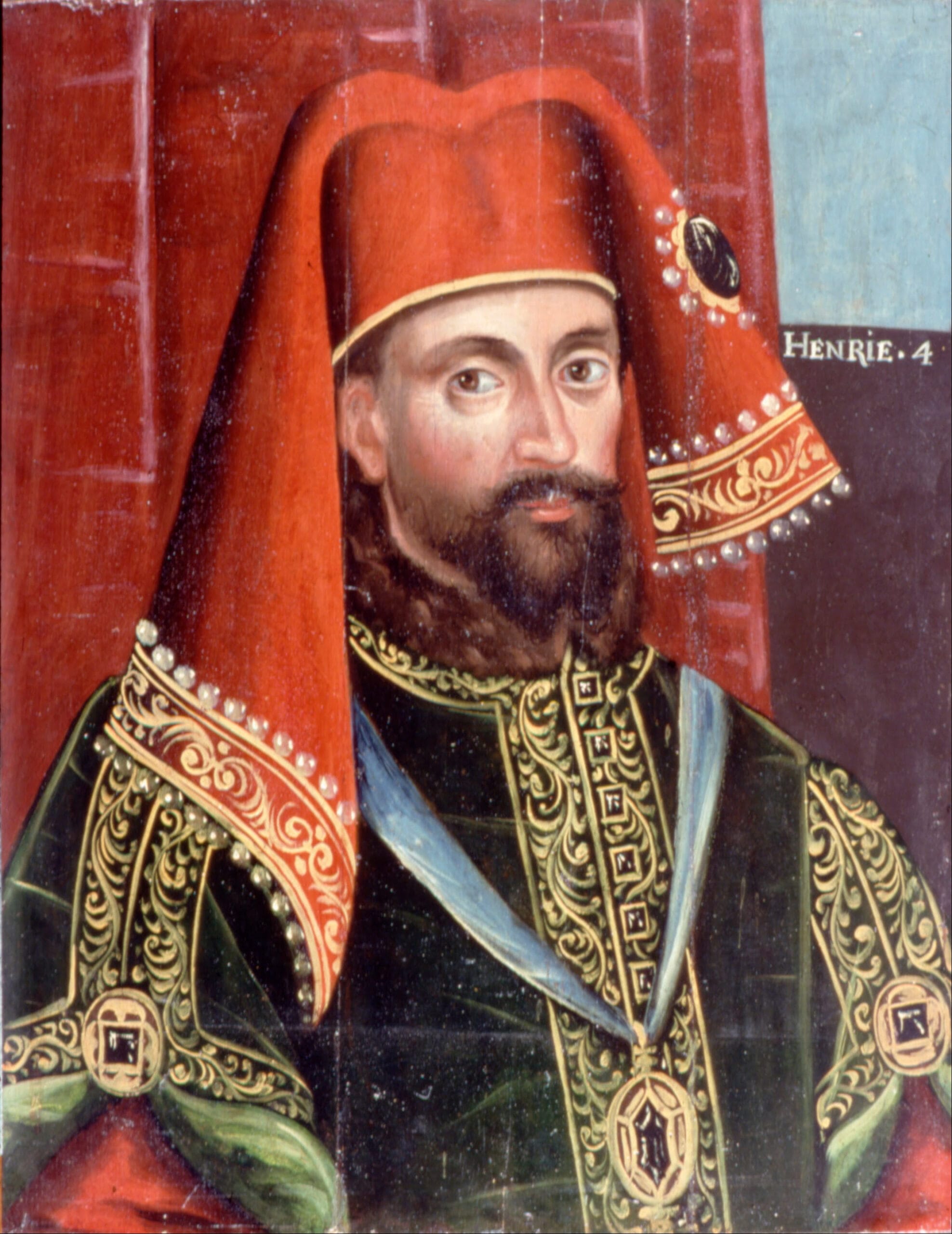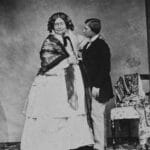Let’s journey back to a time of political intrigue and ambition as we explore the captivating tale of Henry of Bolingbroke. This real-life “Game of Thrones” figure navigated the treacherous path to power, ultimately claiming the English throne and forever altering the course of history. Prepare yourself for a deep dive into the life of this cunning strategist, his dramatic rise to kingship, and the enduring legacy of his tumultuous reign.
From Banished Noble to King: The Rise of Henry Bolingbroke
Born into a life of privilege, Henry of Bolingbroke was never meant to be king. As a powerful noble and the son of John of Gaunt, Duke of Lancaster, his destiny took an unexpected turn when his cousin, Richard II, assumed the throne. Imagine the whispered ambitions and simmering tensions within the hallowed halls of power!
Richard II, possibly not the most astute of rulers, inadvertently created a formidable enemy in Henry. A series of political missteps, culminating in Henry’s exile and the unjust seizure of his inheritance, ignited a firestorm of resentment and ambition within him. He was no longer merely a disgruntled nobleman; he was a force poised to reshape England’s destiny.
In 1399, Henry seized his opportunity. With Richard weakened and vulnerable, he returned from exile, rallying support from a discontented populace and capitalizing on the king’s perceived misrule. Some might call it a hostile takeover, others a strategic maneuver, but there’s no denying that Henry’s bid for power was a resounding success. He became King Henry IV, the first monarch of the Lancastrian dynasty, forever altering the trajectory of English history.
Yet, Henry’s reign was far from tranquil. He inherited a kingdom already steeped in turmoil, grappling with rebellions, a depleted treasury, and a wary Parliament.
A Reign of Triumphs and Tribulations
Despite these immense challenges, Henry, tempered by adversity, proved to be a capable and cunning ruler. Demonstrating remarkable military acumen, he quelled rebellions and solidified his grip on power. He skillfully navigated the treacherous waters of court politics, keeping his enemies off-balance and his throne secure.
However, Henry’s reign was not simply about survival; he actively shaped the monarchy. Recognizing the growing influence of Parliament, he laid the groundwork for its future role in English governance. Perhaps most importantly, he secured the continuation of his line, ensuring the throne would pass to his son, the future Henry V.
Looking back, Henry’s time as king serves as a potent reminder that power, even when seized with good intentions, casts long and intricate shadows. He was a man of contradictions—a usurper who evolved into a strong king, a ruthless leader who inadvertently paved the way for a more just and equitable society.
His legacy continues to be debated today. Did he steal the throne or claim his rightful place? Was he a tyrant or a visionary? What remains undisputed is that Henry of Bolingbroke’s dramatic ascension irrevocably transformed English history. He set the stage for the dynastic struggles of the Wars of the Roses and irrevocably altered the relationship between the monarchy and Parliament, leaving behind a legacy as complex and fascinating as the man himself.
Why Was Henry IV Called Bolingbroke?
Even after ascending to the throne, Henry IV continued to be known as “Bolingbroke,” a moniker that speaks volumes about his origins and ambition.
You see, Henry wasn’t born just anywhere. He was born in Bolingbroke Castle in Lincolnshire, a grand and imposing fortress that symbolized his lineage and power. Growing up in such a place undoubtedly left an indelible mark, shaping his identity and serving as a constant reminder of his heritage.
When Henry challenged his own cousin, Richard II, for the throne, the name Bolingbroke transformed into a rallying cry. It was a powerful statement, reminding all who heard it of his ancestral right to rule. Even as he faced rebellions and fought to solidify his legitimacy, the name stuck. It became synonymous with his ambition, his political maneuvering, and ultimately, his triumph.
Think of it this way: when people heard “Bolingbroke,” they didn’t simply recall a place; they envisioned a man, a king, and the legacy he forged. The name evokes a turbulent period in English history, a time of shifting alliances, ruthless power struggles, and the rise of a new dynasty—the Lancastrians.
So, the next time you encounter the name “Henry IV,” remember Bolingbroke. It’s more than just a name; it’s a story—a captivating tale brimming with intrigue, ambition, and the weight of history.
The Tumultuous Reign and Demise of a King: What Happened to Henry Bolingbroke?
Ascending to the throne was just the beginning of Henry Bolingbroke’s story. Ruling England was a constant battle, riddled with challenges and threats to his legitimacy. The manner in which he seized power left many uneasy, with whispers of “usurper” following him throughout his reign. Henry spent a significant portion of his kingship defending the crown he had fought so hard to obtain.
Yet, he wasn’t solely focused on quelling rebellions. Henry proved himself to be a shrewd and capable ruler. He recognized the importance of Parliament and shrewdly gave them a greater voice in governance. He also understood the growing influence of merchants and wisely brought them into the fold. He even implemented legal reforms, striving to create a fairer justice system.
However, the shadow of Richard II loomed large. The forced abdication cast a pall over Henry’s reign, and doubts about his legitimacy persisted. This constant pressure, coupled with the burden of ruling, took a toll on his health. By 1413, Henry was a changed man, ravaged by illness. While the exact nature of his ailments remains a mystery, some historians believe he may have suffered from a disfiguring skin disease.
After years of struggle, Henry Bolingbroke, a.k.a. Henry IV, died in 1413. Historians continue to debate his legacy. Was he a ruthless power-grabber who stole the throne? Or was he a capable, even forward-thinking, monarch who navigated a tumultuous political landscape? Regardless of interpretation, one thing is certain: his time as king left an indelible mark on England. His story serves as a stark reminder that ambition, fate, and perhaps a touch of misfortune can shape the course of history.
Unmasking the Mystery: What Illness Did Henry IV Have?
Throughout his reign, Henry IV battled a mysterious and debilitating illness. Unfortunately, the limited medical knowledge of the time makes it difficult to pinpoint exactly what afflicted him. Historical accounts offer tantalizing clues, but a definitive diagnosis remains elusive.
Some historians suggest he may have suffered from leprosy, a dreaded and stigmatized disease in medieval times. This theory stems from descriptions of skin lesions and Henry’s increasing seclusion from public life, a common practice for those with leprosy.
However, other scholars propose that severe eczema might have been the culprit. This chronic skin condition can cause intense itching, redness, and flaking, aligning with some accounts of Henry’s symptoms.
To complicate matters further, additional theories abound. Some experts propose a combination of ailments, including psoriasis, syphilis (though less likely given the timeline), or even an unknown illness of the time.
The truth is, we might never definitively know what plagued Henry IV. However, the impact of his illness on his reign is undeniable. A king in ill health casts a long shadow, and Henry’s declining condition likely emboldened his enemies and fueled political instability.
Despite his health struggles, Henry IV clung fiercely to power, consolidating the Lancastrian dynasty and leaving a lasting impact on England. His story highlights the often-overlooked influence of illness on the course of history, reminding us that even the most powerful figures are not immune to the frailties of the human body.
Henry Bolingbroke in Richard II: A Shakespearean Portrait of Ambition
In Shakespeare’s “Richard II,” we encounter Henry Bolingbroke not as a historical figure shrouded in the mists of time, but as a complex and multifaceted character thrust onto the stage of human drama.
Bolingbroke is introduced as a powerful Duke, a war hero who has proven himself in the brutal Crusades. He possesses an air of authority and ambition, standing in stark contrast to his cousin, King Richard II. While Richard indulges in poetic musings and revels in the divine right of kings, Bolingbroke is a pragmatist, a man of action who understands the shifting tides of power.
Their relationship is fraught with tension from the outset. When Richard banishes Bolingbroke on trumped-up charges, he unwittingly sets in motion the very events that will lead to his downfall. This exile becomes a crucible for Bolingbroke, fueling his ambition and hardening his resolve.
Upon his return to England, Bolingbroke is not met with resistance, but with open arms. The people, disillusioned with Richard’s rule, see in Bolingbroke a leader who will prioritize their needs. He masterfully manipulates the political landscape, gathering support from both the nobility and the common people.
Bolingbroke’s ultimate confrontation with Richard at Flint Castle is a masterclass in political maneuvering. He doesn’t seize power through brute force, but through calculated words and strategic actions. Richard, realizing the futility of his position, relinquishes the crown, and Bolingbroke ascends the throne as Henry IV.
However, Shakespeare doesn’t present Bolingbroke’s victory as a simple triumph. He grapples with the weight of his actions, haunted by the knowledge that he has usurped the throne. This internal conflict will continue to plague him throughout his reign, as depicted in Shakespeare’s subsequent “Henry IV” plays.
Through Bolingbroke, Shakespeare offers a nuanced exploration of ambition, justice, and the complexities of power. He challenges the notion of divine right, suggesting that leadership rests not solely on lineage but on the ability to command loyalty and navigate the treacherous currents of political reality. Discover the remarkable world of Niccolò Machiavelli and his profound insights into the human condition, which might shed light on this complex character.
Key Points:
- Henry of Bolingbroke, originally a powerful noble, rebelled against King Richard II.
- Seizing power in 1399, Henry became King Henry IV, establishing the Lancastrian dynasty.
- His reign faced significant challenges: rebellions, financial difficulties, and parliamentary opposition.
- Despite this, Henry proved himself a capable and cunning ruler, strengthening his power and recognizing the burgeoning influence of Parliament.
- He ensured the succession of his son, Henry V.
- Henry’s legacy is multifaceted: a seizure of power and the establishment of a more just and equitable society.
- His reign reminds us of kingship’s complex and impactful nature in English history.
Explore Further:
- Delve into the captivating lives of other influential figures: William Backhouse Astor Jr., Helen Herron Taft, and Clyde Barrow.
- Uncover the fascinating history of groups like the Gustavus Adolphus Christian Groups and the Haudenosaunee (The Good Mind).
- Dive into the groundbreaking work of Stephen Hawking or examine historical artifacts like the Rutherford B. Hayes $1 Coin.
- Crypto Quotes’ Red Flags: Avoid Costly Mistakes - June 30, 2025
- Unlock Inspirational Crypto Quotes: Future Predictions - June 30, 2025
- Famous Bitcoin Quotes: A Deep Dive into Crypto’s History - June 30, 2025
















